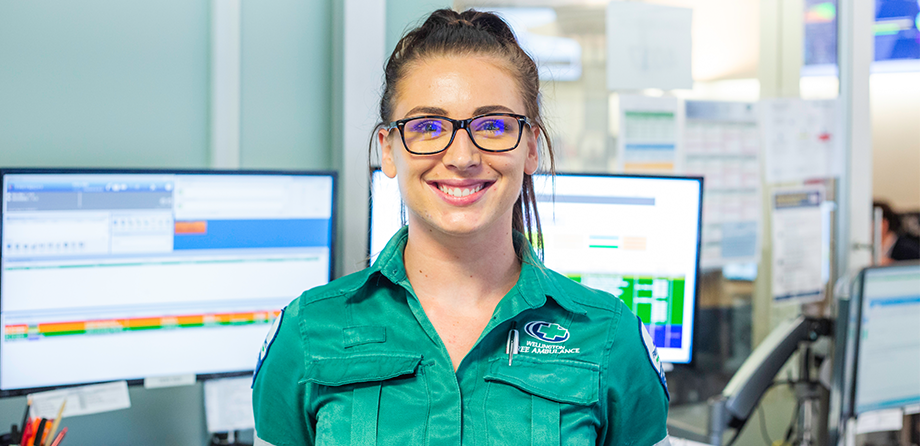About Us
We are the only emergency ambulance service in greater Wellington and the Wairarapa, and the only ones in the country who are free.
We are the only emergency ambulance service in greater Wellington and the Wairarapa, and the only ones in the country who are free.
What we doOur news
Life as a Paramedic and Clinical Paramedic Advisor
Life as a Paramedic and Clinical Paramedic Advisor
 07 May 2020
07 May 2020
Clinical Paramedic Advisor Abby loves her dual role and being part of a specialist team at Wellington Free Ambulance.

Abby’s role as a Paramedic and Clinical Paramedic Advisor (CPA) means she gets to experience the best of both worlds.
As a frontline paramedic, Abby responds to medical emergencies in the Wellington region; as a CPA, she uses her clinical expertise to support paramedics and patients over the phone.
Working as a fulltime paramedic for four years, Abby has spent the last one and a half years in the 111 Clinical Communications Centre as a CPA.
She says there are multiple jobs within the role designed to support and assist frontline paramedics over the phone with a range of cases.
“We assess the current workload and where appropriate we make assessments by phone, calling patients to ensure they are getting the correct care.
“We also liaise with dispatchers at periods of high demand to assist call takers if needed.”
Abby knew little about the CPA role until using it as a frontline paramedic, now in the role herself, she loves being part of the specialist team.
“Working as a CPA has enhanced my clinical practice and decision making skills as a clinician,” says Abby.
The team work very closely with the Medical Directors and have access to a range of information and clinical pathways.
“Working in such a small team means we know everyone really well and have formed great relationships with each other.”
There can be challenges with not being able to physically see patients when assessing them over the phone.
Abby says you notice things when you are able to see a patient and these visuals are seriously underrated when you no longer have that capability.
“This is why, when doing phone assessments you have to really broaden your assessment technique and questioning style.
“We have tools to ensure what we are doing is safe and effective and provides the best possible care.
“We use a safe triaging assessment tool and patients are able to photograph their injuries to send to us.”
Out on the road as a paramedic it’s different, Abby enjoys starting her shift not knowing what it will entail.
“You meet such a wide variety of people and get to really help patients and their family in their time of need,” she says.